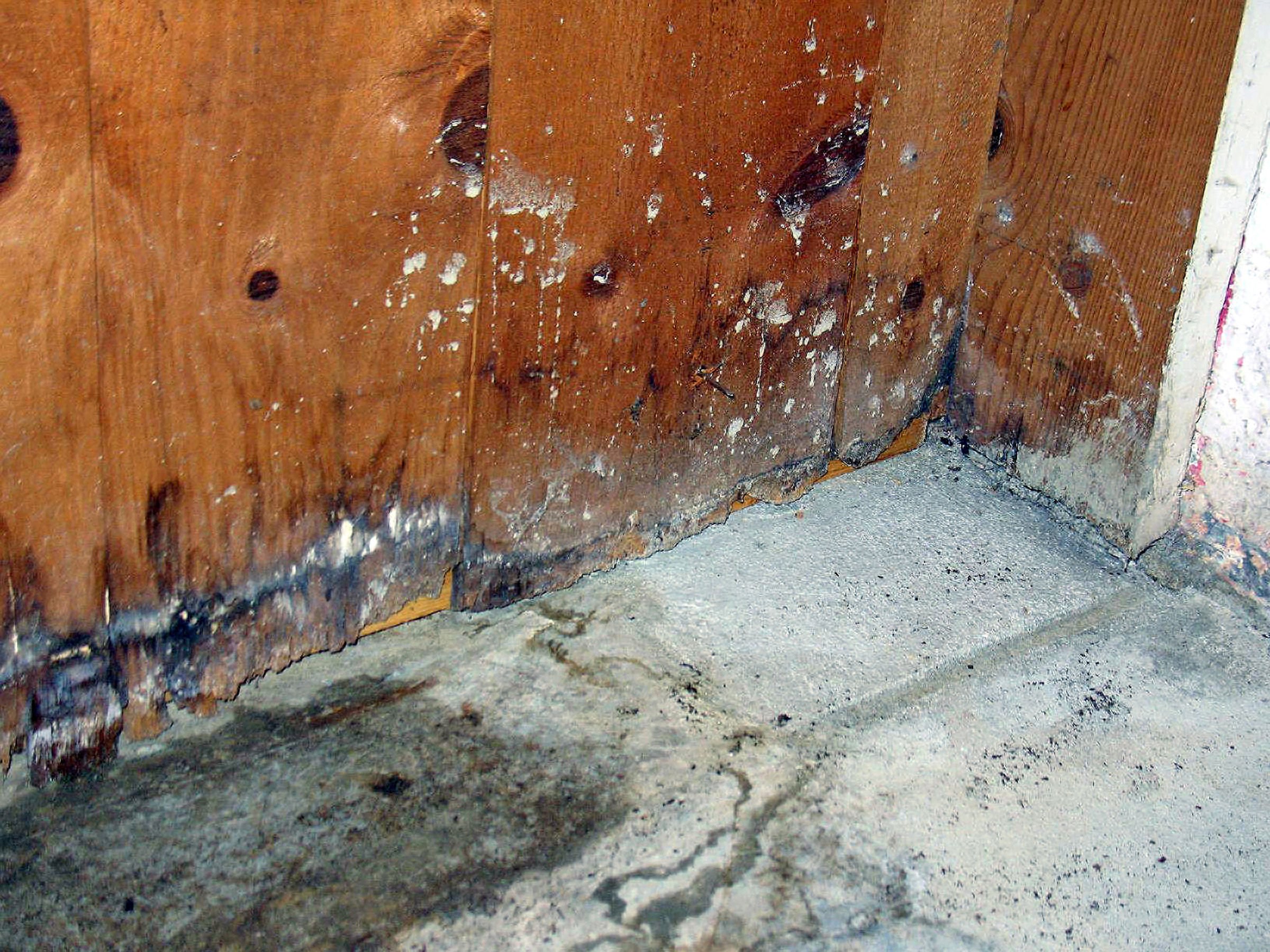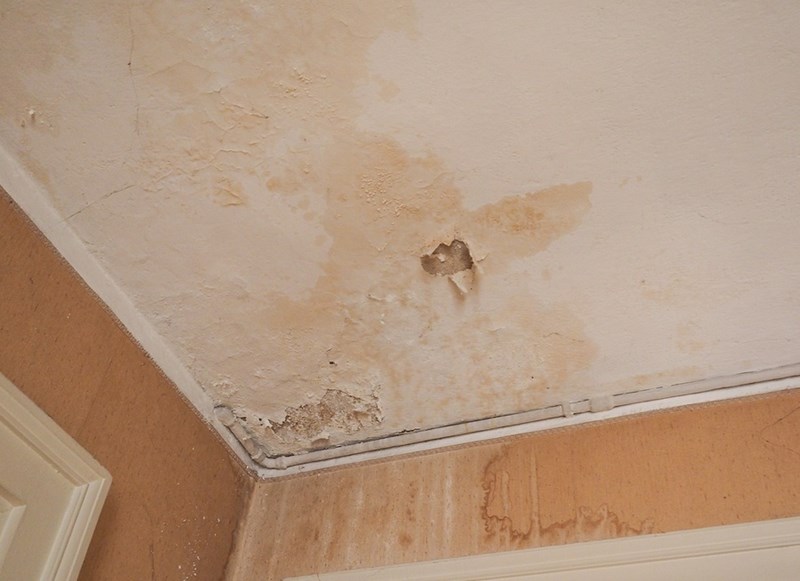Water Mitigation Company with Proven Track Record of Success in Restoration
Water Mitigation Company with Proven Track Record of Success in Restoration
Blog Article
The Refine of Water Damages Clean-up: Ensuring Your Home Is Recovered Efficiently
Water damages can be a complicated challenge for home owners, requiring a careful and structured cleaning procedure to restore security and functionality. An extensive assessment is vital to recognize the degree of the damages and identify the proper removal steps. Following this, efficient water extraction methods play a crucial function in alleviating further injury. Nonetheless, the nuances of drying, sanitizing, and ultimate reconstruction are just as vital and usually overlooked. Recognizing these phases can make a significant distinction in the result of your home's repair, triggering a closer take a look at what each step involves.
Evaluating the Damage
Upon discovering water damages, the primary step is to completely examine the degree of the impact. This initial evaluation is important, as it helps figure out the necessary actions for effective cleaning and remediation. Begin by evaluating the impacted locations, consisting of wall surfaces, ceilings, floors, and personal items, to determine the source of the water invasion, whether from flooding, leaks, or condensation.
Documenting the damage is important for both insurance coverage claims and intending reconstruction initiatives - damage restoration services. Usage photographs and composed notes to capture the severity of the damage, noting any afflicted structural aspects and materials. Pay unique attention to areas that might not be instantly visible, such as behind walls and under carpets, as hidden moisture can bring about further problems, consisting of mold and mildew development
Furthermore, evaluate the timeline of the water direct exposure. The longer the materials stay damp, the higher the capacity for damage. Understanding the period of exposure will educate the seriousness of remediation efforts. Inevitably, a detailed assessment prepares for an effective water damages cleanup process, making certain that all impacted locations are dealt with efficiently and extensively.
Water Removal Methods

Specialists typically utilize submersible pumps for bigger volumes of water, which can promptly minimize flooding in basements or other affected areas. For smaller sized amounts, wet/dry vacuums are usually utilized to extract residual dampness from carpets and tough surface areas. Additionally, utilizing mobile extractors permits targeted removal in restricted areas or areas with delicate materials.
In circumstances of infected water, such as sewage or floodwater, progressed removal strategies may include the use of biohazard tools to ensure safety and compliance with health and wellness regulations. High-powered extraction tools are vital in minimizing water retention in architectural products, which can bring about mold growth and structural degeneration if not attended to without delay.
Inevitably, the performance of water extraction techniques plays a pivotal role in the general success of the water damage clean-up process, preparing for subsequent reconstruction initiatives.
Drying and Dehumidification
Once standing water has been effectively extracted, the following critical stage in the water damage clean-up process is drying and dehumidification. This step is essential to prevent more damage and mold and mildew development, which can occur within 24 to two days in wet atmospheres.
To achieve efficient drying out, specific devices such as industrial-grade air movers and dehumidifiers is utilized. Air movers circulate air across damp surface areas, boosting dissipation rates, while dehumidifiers minimize moisture degrees in the air, promoting a helpful environment for drying. The combination of these tools ensures that dampness is attracted out from floorings, furnishings, and walls, allowing them to completely dry completely.
It is necessary to check the drying process carefully. Experts frequently make use of wetness meters to examine the moisture material in various products, guaranteeing that all influenced locations get to acceptable dry skin levels. This meticulous method aids to protect against covert dampness pockets that can bring about structural damage or harmful mold and mildew growth.

Cleaning and Sanitizing
After the drying and dehumidification phase is complete, the next vital step in water damage clean-up is cleaning up and sanitizing the affected locations. This procedure is vital to stop the growth of mold and mildew, germs, and other pathogens that flourish in damp atmospheres.
The cleansing stage typically entails getting rid of any type of debris, dust, and contaminants from surface areas using specialized cleaning agents. For tough surface areas, a mix of soap and water or industrial cleaning items is often utilized. Soft products, such as upholstery and carpetings, may require a lot more substantial cleansing approaches, including steam cleaning or deep extraction strategies, to ensure thorough sanitation.

Sterilizing follows cleaning, using EPA-approved anti-bacterials to get rid of unsafe microorganisms. This step is necessary, particularly in areas that may have entered call with floodwaters or sewage, as these sources can pose serious health and wellness dangers.
Furthermore, it is essential to attend to any remaining smells, which might require the usage of smell neutralizers or innovative techniques like ozone treatment. Correct cleaning and sanitizing not only bring back the security and health of your home however additionally prepared for effective repair and repair services in subsequent phases of the water damages clean-up procedure.
Repair and Repair Work

When the analysis is full, remediation efforts can begin. Furthermore, flooring may require similar interest, depending on the degree of water direct exposure.
It next page is crucial to engage experienced restoration experts throughout this procedure, as they have the experience to handle complicated fixings effectively. Additionally, they can assist alleviate prospective future issues, such as mold and mildew development or architectural instability, therefore making certain a risk-free and habitable living atmosphere. Eventually, efficient restoration and fixings recover the home's stability and enhance its total value.
Verdict
In verdict, the procedure of water damage clean-up More Help is crucial for recovering a home to its pre-damage condition. Each phase, from evaluating the damages to executing reliable water extraction strategies, adhered to by thorough drying, sterilizing, and essential repair work, plays an important function in making certain security and conformity with building standards. Efficient execution of these actions not just reduces immediate damage but also enhances the long-lasting stability and worth of the property.
Water damage can be a difficult difficulty read here for house owners, requiring a organized and careful cleanup process to recover safety and security and capability. Inevitably, a comprehensive assessment lays the foundation for an effective water damage cleaning process, guaranteeing that all affected areas are addressed effectively and completely.
Efficient water removal strategies are necessary in alleviating damage and protecting against further complications complying with a water breach event.In conclusion, the procedure of water damage clean-up is vital for restoring a home to its pre-damage problem. Each stage, from analyzing the damage to implementing efficient water extraction methods, followed by extensive drying out, sanitizing, and essential repair work, plays an essential function in making certain safety and security and conformity with structure criteria.
Report this page